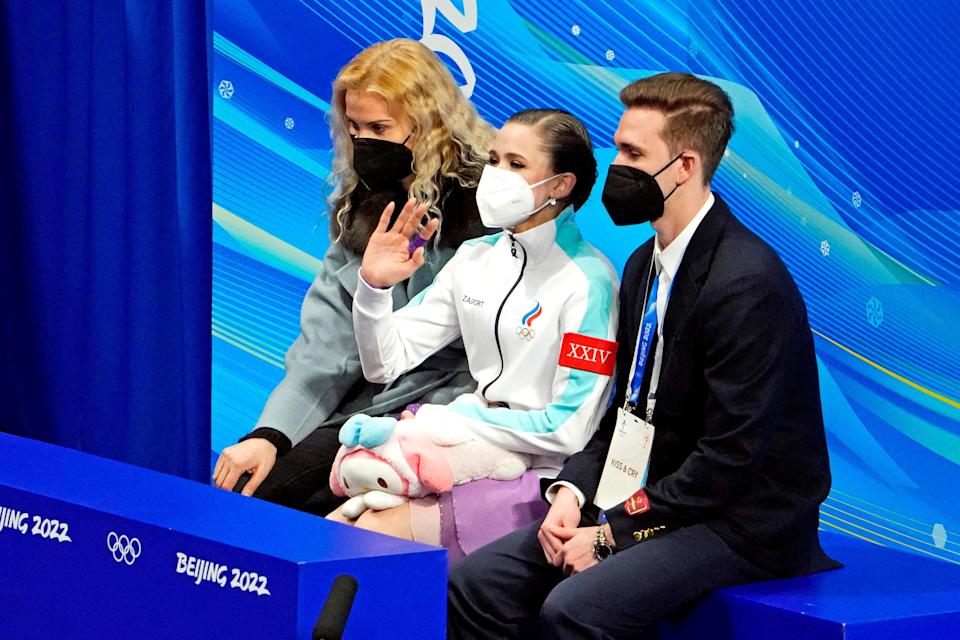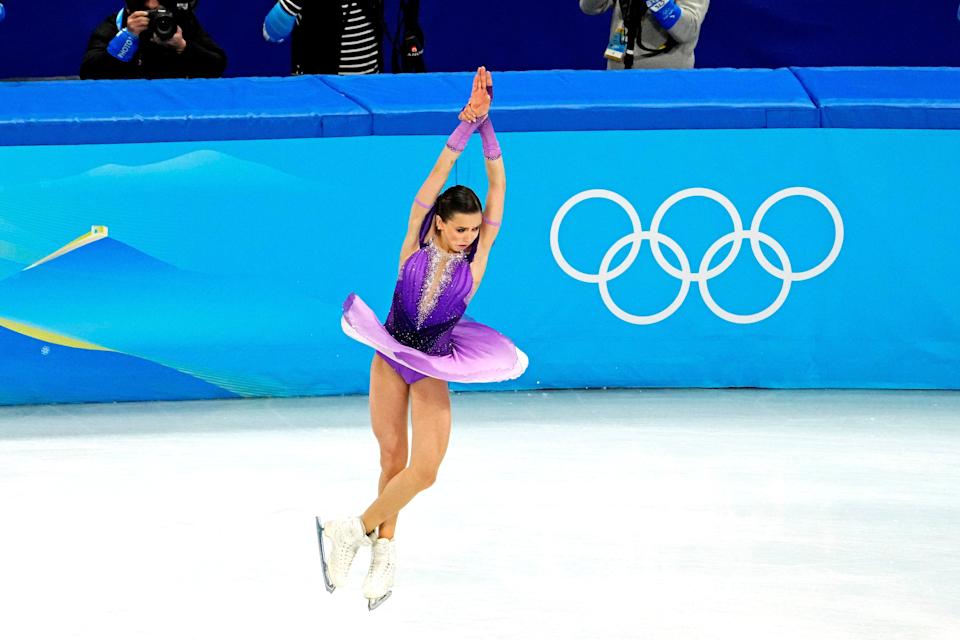I have never wanted a 15-year-old to fail so much in my life.
But when Russian figure skater Kamila Valieva executed her short program Tuesday, that’s exactly what her team’s handling of her positive drug test had reduced me to – a spiteful fan who loved her during the pre-Olympics competitions but now feels betrayed.
I’ve been a figure skating fan since I watched my first Winter Games in the 1970s. In this Olympics season, from October’s Skate America in Las Vegas through all the Grand Prix competitions around the world, my husband and I savored the feast of tournaments that featured 44 women, 38 men, 25 pairs teams and 34 ice dance duos from 21 countries.
And there was no question we’d be watching the Winter Olympics, despite Beijing’s genocide of Muslim Uyghurs and human rights violations – because China is not the fault of athletes who have worked so hard and sacrificed so much to be Olympians.
The best women’s figure skating team
Of course, we cheered for our Americans to do well, but it was obvious from Vegas that the Russians are by far the best women’s figure skating team. Quads, artistry, holy s–t daring. We couldn’t get enough. And from the first time we were introduced to Valieva, her perfection on the ice floored us. We, like the figure skating world, bet it all on her winning gold in Beijing.
But not like this.
Valieva’s Dec. 25 drug test from the Russian national championships came back positive on Feb. 8, a six-week delay the Swedish lab blamed on COVID-19 complications. The bombshell hit after the 15-year-old had already become the first female skater to land a quadruple jump in Olympic history.
Opinions in your inbox: Get a digest of our takes on current events every day


The substance? Trimetazidine, used for heart-related conditions, is not approved for use in the United States and, since 2014, has been on the World Anti-Doping Agency’s list of prohibited substances. TMZ is categorized as a “hormone and metabolic modulator,” illegal for athletes to use both in and out of competition because it can increase blood flow efficiency and improve endurance. What else? TMZ is not recommended for those 18 or younger.
The Stockholm laboratory also found evidence of two other heart-related medications in Valieva’s sample, but they’re not on the banned list, according to The New York Times.
Full coverage: Let USA TODAY help you get caught up on the Olympics
Despite her attorney claiming at a Court of Arbitration for Sport hearing that Valieva’s grandfather takes trimetazidine for heart issues, and that she accidentally ingested the drug by sipping from the same glass of water, I don’t buy it. Andrey Zholinsky, a sports medicine authority who testified at the hearing, said TMZ is packaged in a film-coated tablet and would not leave traces.
What Tara Lipinski and Johnny Weir said about their own histories with drug testing
Look, I feel sorry for Valieva. She’s only as old as my high school freshman son.
I blame the adults – at the testing lab, on her coaching team and among those doping and Olympic organizations – for this permanent stain on the record of such an exquisite, young talent. But is the teenager really blameless?
Lots of people have protested that Valieva shouldn’t have been allowed to compete after the hearing – including NBC analysts Tara Lipinski, who won Olympic gold when she herself was a 15-year-old skater in 1998, and Johnny Weir, a two-time Olympian. On Tuesday, before Valieva skated her short program, they recounted to viewers how from a young age, regular drug testing affected what medicines they could take whenever they got sick.
“My first drug test was when I was 13 years old,” Weir said, “and from then on until my 20s, I had to account for every hour of every day by filling in a calendar and submitting it to two different doping agencies. And it came to the point where I would be so sick, my mom had to call a hotline to see what I was able to take. So I was very aware early on what I was allowed to put into my body.”
“I was drug testing by the time I was 12,” Lipinski said, “and it was just protocol. I knew that this was the way of life for a skater and an athlete. … My mom, any time I had a mild cold, she would say OK, we got to call who we need to make sure we’re taking the proper meds.”
U.S. track and field star Sha’Carri Richardson, who wasn’t allowed to compete at the 2020 Tokyo Olympics after testing positive for marijuana, tweeted that the only difference between her case and Valieva’s is that “I’m a black young lady.”
The Uyghurs: My people suffer genocide while the world plays games at the Winter Olympics


As much sympathy as you feel for Valieva, think of her fellow figure skaters. This scandal has already robbed them of the team medal ceremony during the Beijing Games, where Russia grabbed gold, the USA earned silver and Japan won bronze. And if Valieva placed in the top three in the individual events, the International Olympic Committee said, it would not hold a medal ceremony. Well, the women’s free skate competition is Thursday.
For her short program, Valieva skated to “In Memoriam” by Kirill Richter. It’s a sad, haunting instrumental piece filled with regret and longing. And I watched the same emotions pass over the teen’s face as she uncharacteristically failed to perfect a triple axel but, of course, still executed a difficult show that the judges placed first. When she finished, she put her hands to her face and her eyes seemed to tear up.
Seemed. See what team Valieva made me do? Now I can’t even believe if a kid cried. Olympic spirit, in memoriam.
Thuan Le Elston, a member of USA TODAY’s Editorial Board, is the author of “Rendezvous at the Altar: From Vietnam to Virginia.” Follow her on Twitter: @thuanelston
You can read diverse opinions from our Board of Contributors and other writers on the Opinion front page, on Twitter @usatodayopinion and in our daily Opinion newsletter. To respond to a column, submit a comment to letters@usatoday.com.
This article originally appeared on USA TODAY: Olympics: Russia, Kamila Valieva fail figure skating world and fans
